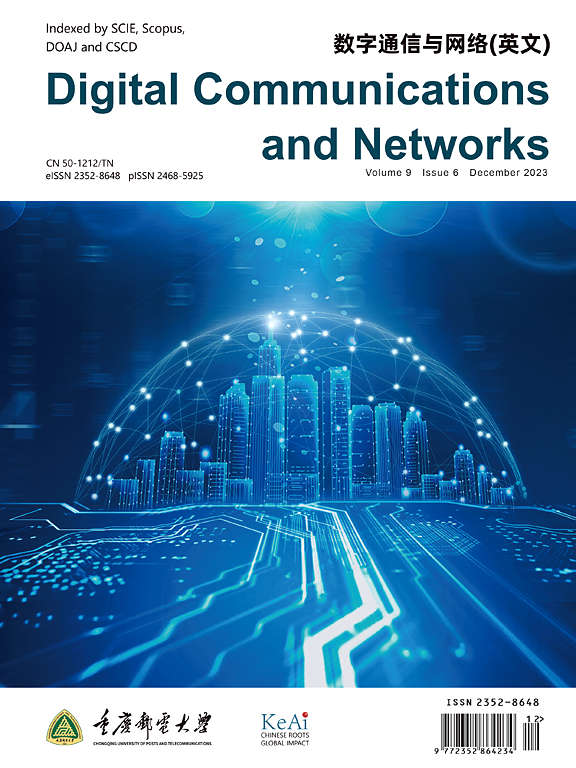Preamble slice orderly queue access scheme in cell-free dense communication systems
IF 7.5
2区 计算机科学
Q1 TELECOMMUNICATIONS
引用次数: 0
Abstract
High reliability applications in dense access scenarios have become one of the main goals of 6G environments. To solve the access collision of dense Machine Type Communication (MTC) devices in cell-free communication systems, an intelligent cooperative secure access scheme based on multi-agent reinforcement learning and federated learning is proposed, that is, the Preamble Slice Orderly Queue Access (PSOQA) scheme. In this scheme, the preamble arrangement is combined with the access control. The preamble arrangement is realized by preamble slices which is from the virtual preamble pool. The access devices learn to queue orderly by deep reinforcement learning. The orderly queue weakens the random and avoids collision. A preamble slice is assigned to an orderly access queue at each access time. The orderly queue is determined by interaction information among multiple agents. With the federated reinforcement learning framework, the PSOQA scheme is implemented to guarantee the privacy and security of agents. Finally, the access performance of PSOQA is compared with other random contention schemes in different load scenarios. Simulation results show that PSOQA can not only improve the access success rate but also guarantee low-latency tolerant performances.
无小区密集通信系统中的前导片有序队列访问方案
密集接入场景下的高可靠性应用已成为6G环境的主要目标之一。为了解决无小区通信系统中密集机器类型通信(MTC)设备的访问冲突问题,提出了一种基于多智能体强化学习和联邦学习的智能协作安全访问方案,即前导片有序队列访问(PSOQA)方案。在该方案中,前置安排与访问控制相结合。序文的编排是通过虚拟序文池中的序文片实现的。接入设备通过深度强化学习学习有序排队。有序队列削弱了随机性,避免了碰撞。在每次访问时,将一个前导片分配给有序访问队列。有序队列由多个agent之间的交互信息决定。结合联邦强化学习框架,实现了PSOQA方案,保证了智能体的隐私性和安全性。最后,比较了PSOQA与其他随机争用方案在不同负载场景下的访问性能。仿真结果表明,PSOQA不仅可以提高访问成功率,还可以保证低时延容错性能。
本文章由计算机程序翻译,如有差异,请以英文原文为准。
求助全文
约1分钟内获得全文
求助全文
来源期刊

Digital Communications and Networks
Computer Science-Hardware and Architecture
CiteScore
12.80
自引率
5.10%
发文量
915
审稿时长
30 weeks
期刊介绍:
Digital Communications and Networks is a prestigious journal that emphasizes on communication systems and networks. We publish only top-notch original articles and authoritative reviews, which undergo rigorous peer-review. We are proud to announce that all our articles are fully Open Access and can be accessed on ScienceDirect. Our journal is recognized and indexed by eminent databases such as the Science Citation Index Expanded (SCIE) and Scopus.
In addition to regular articles, we may also consider exceptional conference papers that have been significantly expanded. Furthermore, we periodically release special issues that focus on specific aspects of the field.
In conclusion, Digital Communications and Networks is a leading journal that guarantees exceptional quality and accessibility for researchers and scholars in the field of communication systems and networks.
 求助内容:
求助内容: 应助结果提醒方式:
应助结果提醒方式:


